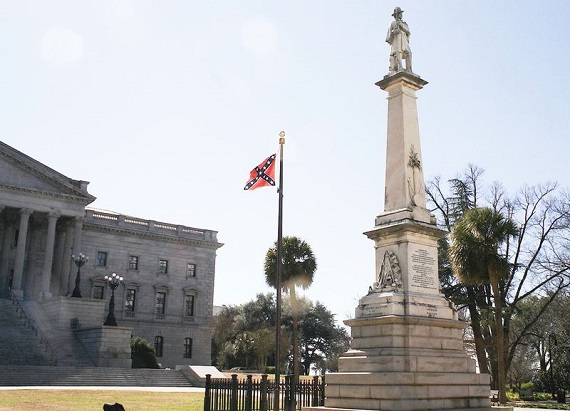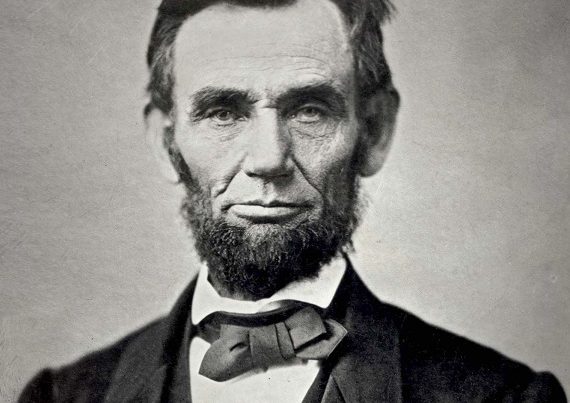The recent Klan activities in Forsyth County, Georgia and Summerville, South Carolina make it more and more difficult for those of us who are trying to keep the battle flag flying and Dixie in the repertoire of bands around the region.
You saw them on your television screen: angry little clusters of the ignorant, assembled in front of the ravenous TV cameras, making us all look bad just one more time so Yankees can feel that old sense of superiority, even though the same thing is happening in New England and the Midwest. In Georgia the Klansmen were dressed in jeans and jackets; in South Carolina they wore those absurdly lavish costumes that probably cost them three weeks’ pay. But in both places they were carrying rectangular Confederate battle flags, waving them defiantly.
The Confederate Army fought no battles against blacks. Indeed, there were black Confederate soldiers. They fought mostly white Yankees, and many of us believe they did not fight to defend slavery. After all, the Union had slaveholding states too, and Lincoln said more than once that the South could keep its slaves if it would only come back and submit to Northern industrialism. When the South lost the War, blacks and whites endured the prolonged misery of defeat. White Southerners and black Southerners have a history of shared suffering. Indeed, we have more in common with one another than we do with most Yankees. The Southern gentry who survived Reconstruction opposed Jim Crow, which was a Yankee invention and a white trash political weapon. Read the lives of Wade Hampton of South Carolina, LeRoy Percy of Mississippi, and a host of others throughout the region. The Vardamans, Tillmans, Bilbos, and Talmadges were motivated by greed and envy— and it was they who set the stage for renewed Reconstruction in the second half of the twentieth century.
Now their heirs in Forsyth County are at it again: doing precisely what the demonstrators hoped they would do. Then, two weeks after the original incident, thousands came from all over the country to march. Klan leaders who at first said they would hold a counter-demonstration decided they wouldn’t show up after all. A prudent decision. How wise it would have been had they not shown up the first time.
In a way you have to feel sorry for them. They are foolish people in desperate need of instruction. But at the moment I have a hard time feeling sympathetic, and for two reasons.
First, they are clearly malevolent. Never mind that they have been ill-used by a number of people (mostly Yankees but not exclusively) who have lied about their past, manipulated their present, and trashed their future. Never mind that the intelligent voices of the South have been silent, while liberals and pecker-woods have monopolized the stage. Never mind that on many other issues these people are True Believers. The fact remains that in a Christian society you don’t cast
stones at anybody, unless, of course, you are absolutely sinless. We have that on the Best Authority.
But the second reason it’s so difficult to excuse these people is a pragmatic one. They are trying desperately to make certain that we lose the battle for our flag and for our song. After this Forsyth business, the last remaining banners may be furled all over the region.
In anticipation of this and in despair over what has been happening recently, I would like to propose a compromise, one that perhaps everyone can live with. Let’s let the Klan and their followers take that rectangular naval flag that people mistakenly believe was the official emblem of the CSA. I hate to lose it; I have one on my wall right now. But it has been vulgarized in recent times and— let’s face it—the Confederate Navy was not the most effective arm of our fighting force.
In its place let those of us who believe in the historical Confederacy adopt the square battle flag, the one the Army really fought under. It looks almost the same— but the shape is distinctive and thus far no one has abused or discredited it. Let’s publicly proclaim that this flag is NOT a symbol of slavery or oppression, that it represents everything good in the Old South—honor, Christian piety, family, integrity, traditional morality, and freedom from regimentation.
Then let’s fight for that flag, defending it from the carpetbaggers, the scalawags, and from those poor ignorant folks at Forsyth and Summerville, who may be our worst enemies after all.
Originally published in Southern Partisan in 1987.







